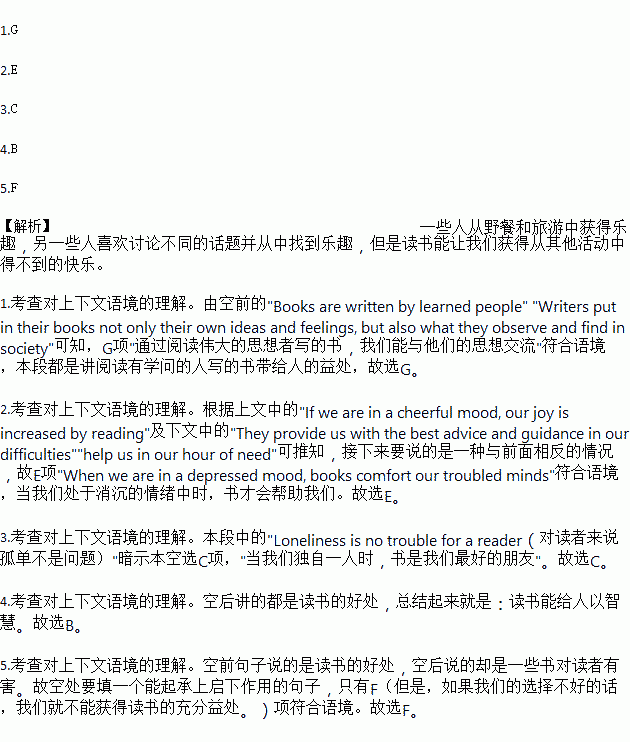题目内容
Some people get pleasure from picnics and tours. Others like to discuss various topics and find pleasure in it. But the reading of books provides us with such pleasure as we do not get from any other activity.
Books are written by learned people. They contain the best experiences and thoughts of their writers. Writers put in their books not only their own ideas and feelings, but also what they observe and find in society.1.
If we are in a cheerful mood, our joy is increased by reading.2.They provide us with the best advice and guidance in our difficulties. Indeed, books are our best friends as they help us in our hour of need.
3.They entertain us in our spare moments. Good novels, books on poetry and short stories, give us great enjoyment. At times we become so absorbed in our books that we forget even our important arrangements. Loneliness is no trouble for a reader.
4.They give us sound moral advice. It is through the reading of books that we learn what to love and what to hate. The reading of good books develops and improves our character.
It was the English author Bacon who said that reading makes a full man. No one can question the truth of this saying. 5.Some books are such that instead of doing any good, they do harm to the readers. So it is the reading of good books alone that presents us the greatest benefit.
A. Books keep us well-informed.
B. Books contain grains of wisdom.
C. When we are alone, books are our best friends.
D. Books enable us to know the best of the colorful world.
E. When we are in a depressed mood, books comfort our troubled minds.
F. But we cannot get full advantage from reading, if our choice is not good.
G. By reading books written by great thinkers, we come in contact with their minds.
 教材全解字词句篇系列答案
教材全解字词句篇系列答案
